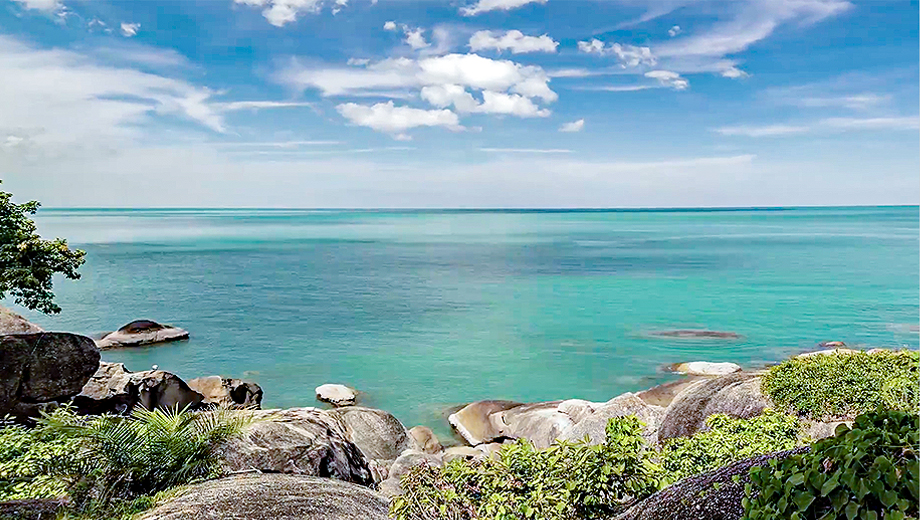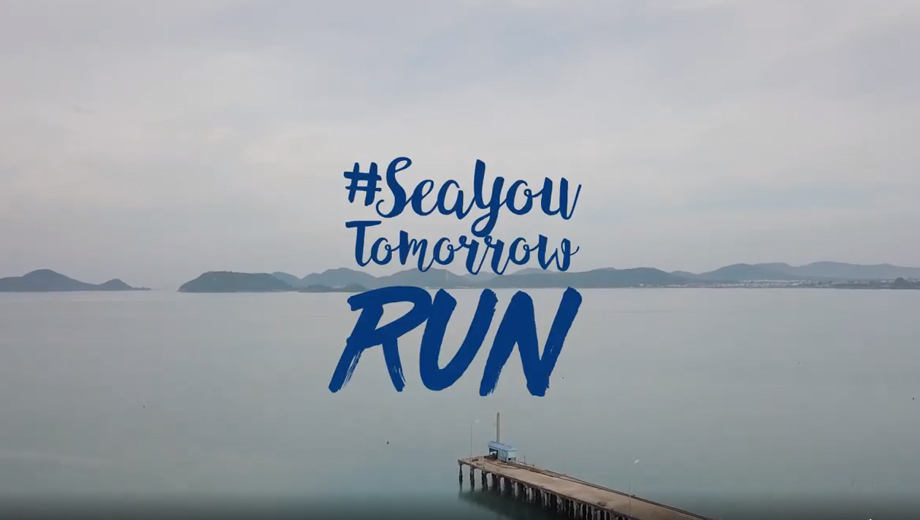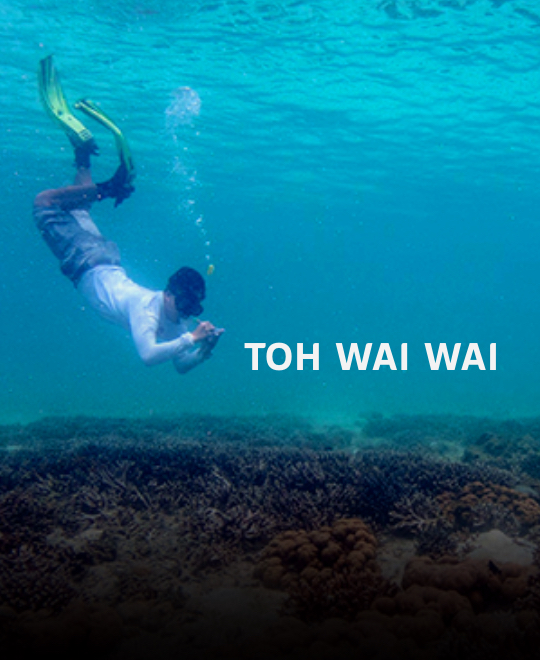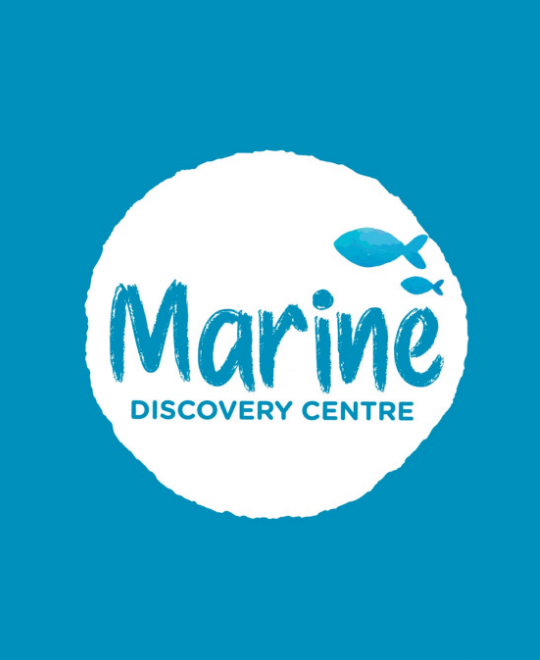
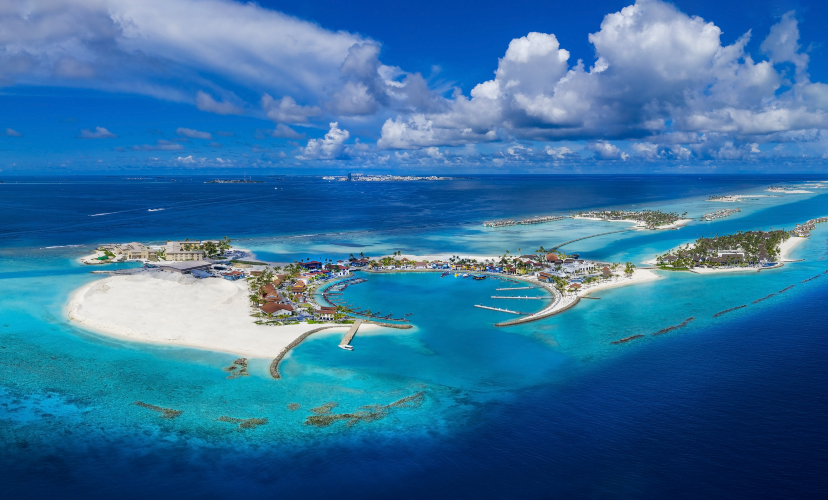
About CROSSROADS
The Maldives is an island nation in the Indian Ocean, formed by coral reefs that developed atop ancient underwater volcanic craters. The country is made up of 20 atolls and more than 1,190 islands, stretching over 648 kilometers from north to south. Its capital, Male, is in the Kaafu Atoll. The entire population of the Maldives practices Islam.
According to the 2014 national census, the Maldives had a population of 338,434 with 129,381 people living in Male—an area of just 6.8 square kilometers—making it one of the most densely populated capital cities in the world.
With a vision of creating long-term value for all stakeholders, S Hotels and Resorts Public Company Limited, a subsidiary of Singha Estate Public Company Limited, launched the CROSSROADS project. This development consists of nine man-made islands, spanning 7 kilometers near the international airport and the capital city of Male.
The project is committed not only to business growth in tourism and hospitality but also to protecting the fragile marine ecosystem, supporting local communities, and promoting balanced and sustainable development in the Maldives.
Community and Social Engagement
What We’ve Done
As part of the CROSSROADS project, the Maldives Discovery Centre was established to showcase the art, culture, heritage, and identity of the Maldives and its people. The center also promotes local products, featuring 13 traditional crafts from 7 islands across the country. As of February 2020, the center welcomed more than 13,686 visitors. Additionally, the project supported the Fannu Expo 2019, a national exhibition that brought together over 350 vendors and showcased more than 30,000 local products from across the Maldives.
According to demographic data, the female population in the Maldives stands at 166,472, with 64,938 women living in the capital, Malé. Due to Muslim cultural norms and the geographical challenges of inter-island travel, women often face limited employment opportunities, as many must stay close to home to care for their families and are unable to stay overnight on other islands for work.
Recognizing this, the CROSSROADS project has leveraged its proximity to Male—just a 15-minute commute—to create more accessible job opportunities for women. As a result, 18.18% of the workforce (142 out of 781 employees) are women. In addition, 60.18% of the staff (470 people) employed at CROSSROADS are Maldivian nationals, reinforcing the project’s commitment to supporting local communities and empowering the people of the Maldives.
Focusing on the Youth in the Maldives, there are 93,478 children under the age of 15, with 30,646 of them living in the capital city, Malé. Due to the limited land area on the islands, many Maldivian children have very few opportunities to learn swimming—a fundamental skill for island living.
To address this gap, the CROSSROADS project has taken the initiative to send trained staff to teach children swimming and snorkeling on Gulhi and Villingili Islands. To date, the program has successfully provided training to 60 children, helping them gain confidence and essential skills to safely enjoy and connect with the ocean around them.
Environmental Conservation
What We Do
The Maldives’ most important natural resources are its coral reefs and seawater. These provide habitats, food sources, and are crucial to the tourism industry. Therefore, the project has adopted strong policies to protect the marine ecosystem.
Before the development of the CROSSROADS project, a biodiversity survey of the coral reefs in the area was conducted. It revealed that there were no fewer than 100 species of reef fish. A hawksbill turtle, classified as Critically Endangered on the IUCN Red List, was also found. This led to a redesign of the island construction plans to conserve the coral reef, which serves as its home. The turtle was named EMMA.
Construction in the sea, such as water villas, was carried out correctly and followed the Environmental Impact Assessment (EIA). These structures were built at least 100 meters away from the coral reef to minimize impact on nature and to preserve the natural beauty of the sea.
Additionally, collaboration was established with government agencies, international non-profit organizations (NGOs), and local communities to restore degraded coral reefs. Coral propagation techniques were employed, with support from Ocean Quest Global and Sea Shepherd Dive, who taught methods that connect nature with nature. These were shared with local children, tourists, and hotel guests through the Marine Discovery Centre, which is staffed by marine scientists. The center has taught more than 70 children per month and welcomed over2,933 visitors from 67 countries (as of February 2020).
Once the project was underway, a sustainable development policy was set in place to prevent negative impacts on marine biodiversity. Over 64,000 square meters of coral reef area within the project have been maintained, and critically endangered species listed on the IUCN Red List—such as hammerhead sharks and guitarfish—have been reported in the area.
Operations at CROSSROADS Maldives
When the project began operations in September 2019, water usage and waste management were key priorities. A system was implemented to utilize seawater and treat wastewater through a Sewage Treatment Plant (STP), which can process up to 400 cubic meters of wastewater per day. The treated water is then reused for irrigation throughout the project.
In addition, the project focuses on effective waste management by establishing the Waste to Wealth Centre to create policies aimed at reducing, sorting, and reusing waste. The goal is to eliminate plastic waste within the project. Waste management processes have been optimized to achieve 5% reuse, 6% reduction, and 89% recycling.
For recycling efforts, CROSSROADS has partnered with Parley Maldives, a platform that encourages collective action to reduce plastic waste and prevent ocean pollution. In February 2020, the project sent 250 kilograms of recyclable plastic for processing.
In terms of carbon dioxide reduction, CROSSROADS has set a target to reduce CO₂ emissions by 25% by the year 2025. A carbon emission assessment has been conducted, and a plan to reduce carbon output has been developed in alignment with Green Globe, an international sustainability standard.
วิดีโอสรุปเกี่ยวกับกิจกรรม
Location
CROSSROADS MALDIVES
ศูนย์การเรียนรู้ทางทะเล



